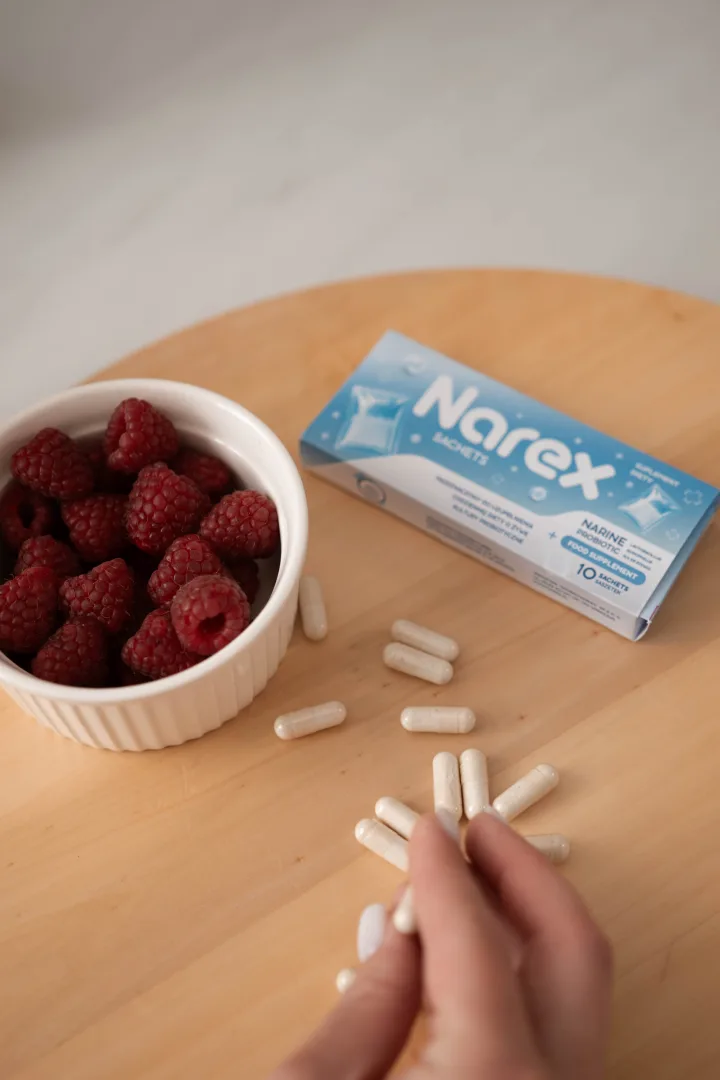
Probiotics: Myths and Facts – Part 2
Today we’ll discuss probiotics, which have gained enormous popularity in recent years. Unfortunately, this rise in popularity has also led to widespread misinformation. In this article, we’ll address the most common myths and present facts supported by scientific research.
What Are Probiotics?
Probiotics are live microorganisms that, when consumed in adequate amounts, provide health benefits to the host. The most common probiotic bacteria belong to the Lactobacillus and Bifidobacterium genera. They can support digestive health, strengthen immune function, and even influence mood.
Myth 1 – All Probiotics Are the Same
This is one of the most common misconceptions. Different probiotic strains have different properties and functions. For example:
Lactobacillus rhamnosus GG is effective in treating antibiotic-associated and traveler’s diarrhea.
Lactobacillus acidophilus has broad applications and is especially effective during and after antibiotic therapy.
Myth 2 – Probiotics Can Be Taken Without Breaks
Many people believe probiotics can be taken continuously, assuming constant use will always be beneficial. However, studies and clinical experience suggest that the best results come from taking probiotics in cycles tailored to individual health needs.
Understanding the Probiotic Supplementation Cycle
Probiotics are living microorganisms that help restore gut microbial balance. Their effectiveness can vary with the duration of use. Some studies show that prolonged use may reduce efficacy due to microbial adaptation.
A review published in the Journal of Clinical Gastroenterology found that cyclic probiotic use may be more effective for long-term gut health. In these studies, participants took probiotics for several weeks, followed by a break to assess their gut response.
Why Take Breaks?
- Continuous use can lead to adaptation, where gut flora stops responding effectively to supplementation. Breaks help “reset” the microbiota and restore its natural self-regulation.
- Pausing allows you to observe how your body reacts and determine if adjustments are needed.
- Taking breaks can also reduce the risk of hypersensitivity to probiotic components. Long-term use of the same strains may lessen the body’s responsiveness to them.
Myth 3 – Probiotics Are Only Needed for Digestive Issues
This is false. Probiotics offer several other benefits, including immune system support. They can modulate immune responses, helping reduce infection risk. Research also shows a link between gut health and mental health, suggesting probiotics may positively affect mood and cognitive function.
Myth 4 – Probiotics Replace a Healthy Diet
Another misconception is that probiotics can replace a balanced diet. In reality, they only complement it. To gain full health benefits, you need a varied diet rich in fiber — a natural prebiotic that nourishes beneficial gut bacteria.
Why Is a Healthy Diet Important?
Prebiotics are indigestible dietary components that stimulate the growth and activity of beneficial bacteria in the gut. They are found in fiber sources such as inulin, oligofructose, and fructooligosaccharides, commonly present in foods like onions, garlic, bananas, artichokes, and whole grains. Prebiotics “feed” probiotics, supporting their colonization and activity.
A diet rich in fruits, vegetables, whole grains, nuts, and seeds promotes microbial diversity and supplies essential vitamins and minerals. B vitamins and vitamin K, for instance, are synthesized by gut bacteria and play vital roles in metabolism and overall health.
Probiotics as a Dietary Supplement
Probiotics are particularly beneficial for individuals with conditions such as irritable bowel syndrome (IBS), antibiotic-associated diarrhea, or other gut disorders. While a healthy diet provides prebiotics, probiotics help replenish gut flora after stress, illness, or antibiotic use. They can be consumed in supplements or fermented foods like yogurt, kefir, kimchi, or sauerkraut.
Studies show that combining probiotics with prebiotics — forming synbiotics — can enhance probiotic survival and effectiveness by promoting the growth and activity of beneficial gut bacteria.
Probiotics are generally safe for most people, but it is advisable to consult a healthcare professional before starting supplementation, especially if you have existing medical conditions.
Summary
Probiotics are a powerful tool for supporting health, but they are not a universal remedy. Different strains have unique properties and should be selected based on individual health needs. Probiotics should complement, not replace, a balanced diet. A fiber-rich diet with vegetables, fruits, and whole grains is essential for maintaining a healthy microbiota.
The best results are achieved by consulting a doctor or dietitian who can recommend the right strain, dosage, and duration. Regularly monitoring and adjusting supplementation ensures maximum health benefits from probiotic use.
SEO description (max 140 characters):







